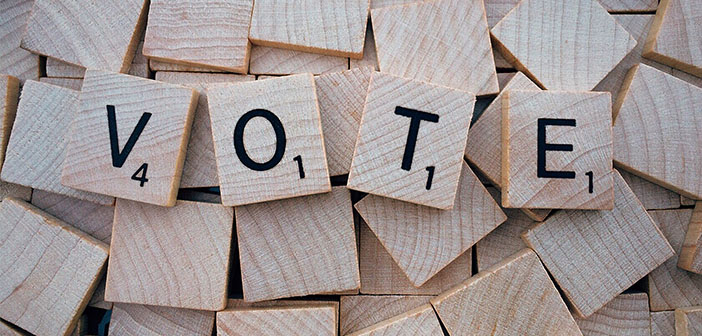
A quick question for the 420 community: Are you prepared to vote?
As American voters count down to the Nov. 6, 2018, general election, it’s essential that people understand that voting is a privilege and a civic duty that should be embraced by every United States citizen — particularly those within the cannabis community.
Marijuana legalization is one of the rare policy matters with the capacity to drive America’s citizens to the polls, according to The Cannabis Voter Project and its director, Sam D’Arcangelo.
“The first reason why we chose the cannabis issue is that cannabis policy is one of the few issues out there that has the power to get people who otherwise wouldn’t vote, out to the polls,” D’Arcangelo toldo Billboard. “It has the ability to drive voter turnout in a big way that a lot of other single issues just don’t.”
As such, the election represents a rare opportunity to advance legalization, continue the political momentum of reform, and regain a modicum of personal freedom.
And while I understand the political frustrations — the seemingly endless number of lobbyists, lies, and back-room deals — that many might be feeling, deciding not to vote on Nov. 6, 2018, means that you are essentially abdicating any future right to complain when you are busted for weed, fired from your job, or otherwise find yourself a victim of marijuana prohibition.
We Smoke and We Should Vote
There’s little doubt, the voters are notably more supportive of reform than those holding elected office. Sixty-six percent of Americans said marijuana should be legalized for recreational purposes, according to a Pew Research Center Poll released Oct. 22, 2018.
However, at both the state and federal level, our elected officials have failed to respond with policies that represent America’s acceptance of weed. Despite nearly two-thirds of Americans voicing support for the full legalization of marijuana, many elected officials still try to conceal their views on the issue of reform. But thanks to websites such as Cannabisvoter.info, home of the Cannabis Voter Project, those policymakers may be finding it harder to hide or distort their voting records.
In all states, like say Michigan, voters can easily research the voting records of local representatives. If you intend to vote on cannabis issues, a politician’s voting record is crucial information.
Although marijuana has been legalized for both medicinal and recreational purposes in 31 states and Washington, D.C., since 1996, there’s a lot riding on the results of the November 2018 election for America’s budding new industry. If the ballot initiatives in Michigan, North Dakota, Missouri, and Utah are passed by voters on Nov. 6, it is generally believed that those victories will motivate additional states to consider reform proposals in 2019.
As each new victory adds credibility to legalization, it also increases pressure on the federal government to reform their disastrous policy on cannabis.
Personally speaking, for me cannabis has been a consistent source of relaxation and comfort for many years. I’ll be looking to cast my ballot as a vote of vengeance for elected officials with a history of voting against progressive marijuana policies.
Regardless of whether a recreational or medicinal initiative is on your state’s ballot, voters can help further the cause of marijuana reform by learning where their elected officials stand on the issues. If your senator or representative voted against ending the federal prohibition of industrial hemp, against ending the federal prohibition of cannabidiol (CBD), or against allowing Veterans Affairs (VA) doctors to recommend medical cannabis, they need to see action in the form of votes.
It’s been a long, strange trip to reach the tipping point of marijuana’s acceptance. Now is the time for America’s pro-pot voters to step out of the shadows and into the voting booth.

![We[ed] the People: Fight for Your Marijuana Rights Nov. 6!](https://potportal.net/wp-content/uploads/2018/10/102218MBcommentaryBanner-1-1.jpg)











